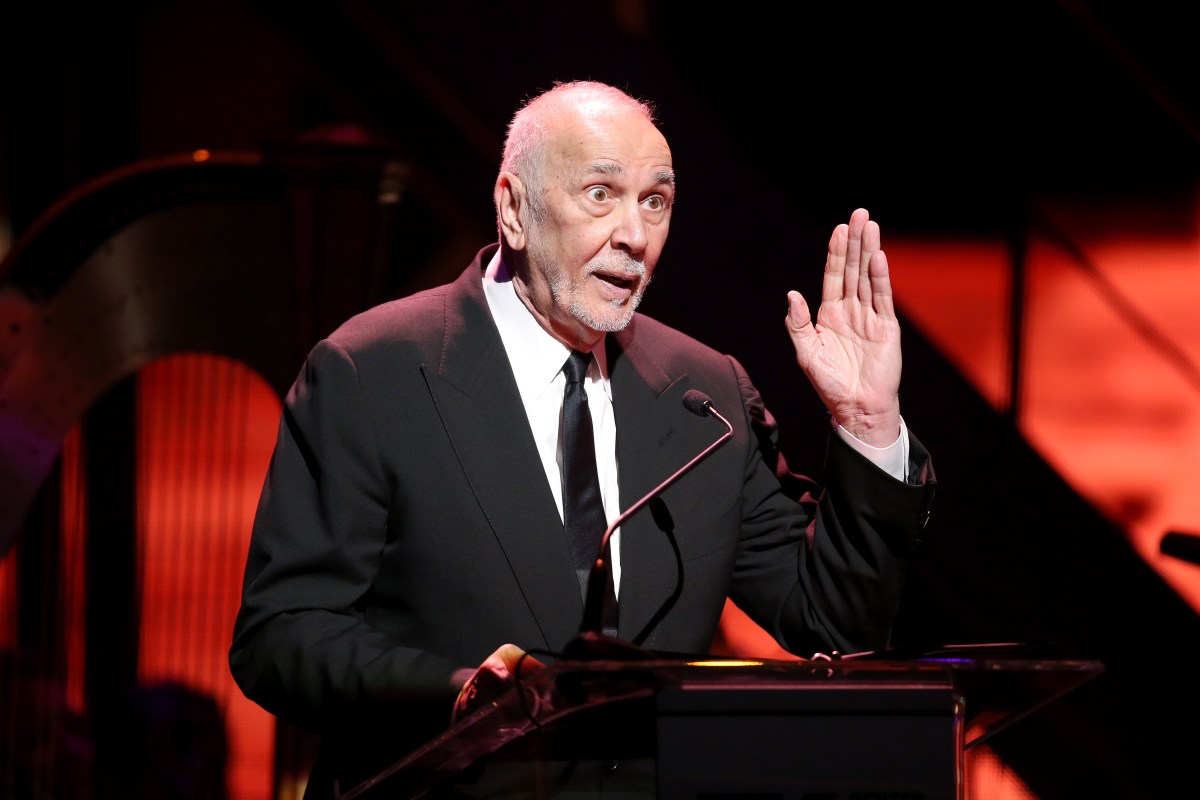Last month, it was announced that Frank Langella was fired from the forthcoming Netflix limited series The Fall of the House of Usher after an investigation into his “unacceptable conduct” on set, including alleged sexual harassment of an unnamed actress. Now, in a newly published op-ed on Deadline, the 84-year-old actor is telling his side of the story, claiming he’s being “canceled” and taking issue with the production’s use of an on-set intimacy coordinator.
“On March 25 of this year, I was performing a love scene with the actress playing my young wife,” Langella writes. “Both of us were fully clothed. I was sitting on a couch, she was standing in front of me. The director called ‘cut.’ ‘He touched my leg,’ said the actress. ‘That was not in the blocking.’ She then turned and walked off the set, followed by the director and the intimacy coordinator. I attempted to follow but was asked to ‘give her some space.’ I waited for approximately one hour, and was then told she was not returning to set and we were wrapped.”
It’s worth noting here, perhaps, that there is no “young wife” (or any wife, for that matter), nor any sex scene in the source material, Edgar Allen Poe’s classic short story about Roderick Usher and his sister Madeline. Langella notes that the eight-episode series is a “modernized” interpretation of the tale, so apparently it’s a loose adaptation that threw in some sort of May-December romance. That’s Hollywood, baby!
“Not long after, an investigation began,” Langella’s column continues. “Approximately one week later, Human Resources asked to speak to me by phone. ‘Before the love scene began on March 25,’ said the questioner, ‘our intimacy coordinator suggested where you both should put your hands. It has been brought to our attention that you said, ‘This is absurd!’ ‘Yes,’ I said, ‘I did. And I still think so.’ It was a love scene on camera. Legislating the placement of hands, to my mind, is ludicrous. It undermines instinct and spontaneity.”
This is where he starts to lose us. If anything, his experience is a perfect illustration of why intimacy coordinators are absolutely essential. Blocking out and choreographing sex scenes in advance allows performers to lay out their specific boundaries in advance, and it helps them to feel more at ease because they know what’s coming — all of which should be mutually agreed upon ahead of time. What a male actor might dismiss as “spontaneity” can actually be traumatizing for his female costar, especially if she’s a survivor of sexual assault. And there are still plenty of ways to allow for improvisation during these scenes, but it has to be something both parties are aware of and in agreement on beforehand. Otherwise, when one actor goes rogue during a love scene without the consent of their partner, it can be interpreted as trying to cop a feel (or worse); talking these things out with the help of an intimacy coordinator eliminates the possibility of an unfortunate misunderstanding.
But Langella doesn’t see it that way. “I cannot speak to the intentions of my accuser or Netflix, but the impact on me has been incalculable,” he writes. “I lost a thrilling part, the chance at future earnings and perhaps face a stretch of unemployment. Netflix terminated me after three months of work with only three weeks left to shoot, and I have as yet to be fully remunerated for my services. Most importantly, my reputation has been tarnished. Cancel culture is the antithesis of democracy. It inhibits conversation and debate. It limits our ability to listen, mediate, and exchange opposing views. Most tragically, it annihilates moral judgment. This is not fair. This is not just. This is not American.”
Thanks for reading InsideHook. Sign up for our daily newsletter and be in the know.

















